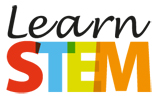Learn STEM is the Pedagogical Model for Innovative STEM Learning and Teaching.
It comprises a general framework for improving learning and teaching of Science, Technology, Engineering and Mathematics (STEM) in secondary schools. It has been developed by nine partners from six European countries (The Netherlands, Belgium, Germany, Italy, Lithuania and Portugal), including experts with professional background in the field of teaching STEM, secondary schools, research, vocational education institutions and developers with technical knowledge and expertise.
Learners need to acquire strong mathematical and scientific abilities in order to be competitive in the 21st century work environment. Thus, development of profound knowledge and skill sets in team work, rational thinking and investigative and creative work which learners can use in all areas of life, is essential. Learn STEM addresses this need to improve the quality and efficiency of education and training as well as the need to enhance knowledge in STEM topics. It will prepare Europe’s residents to be actively engaged, responsible citizens as well as conversant with the complex challenges facing society in the future.
The pedagogical model Learn STEM focuses on the learner who shall become the owner of their own learning processes. Thus, the role of teachers needs to change: teachers should facilitate such learning processes and act as coaches. However, teachers may also guide and supervise the learning process. Learn STEM can be combined with other approaches and methodologies to learn and teach STEM.![]()
Learn STEM is based on educational theories and positions and focuses mainly on the following five characteristics of the learning process:
- Complex
- Process-oriented
- Holistic
- Practical
- Social
Learn STEM objectives comprise three elements: knowledge, skills and competencies. Learners gain STEM knowledge and build STEM skills. Through reflection and repeated training, they build STEM competencies based on assimilation and accommodation. The learning process should be interdisciplinary and holistic. Learning is considered a process going through iterative improvement cycles. Here, the model allows flexibility since the teacher can act more as a coach or as a tutor depending on the situation in the respective educational system. Practical courses are valuable tools during the learning process as they allow to expand knowledge, but also to develop practical skills. Learners will use and demonstrate their obtained knowledge and skills in everyday life problems and successfully apply their developed competencies in new situations. Learn STEM incorporates the complexity of STEM learning activities. This is not only related to the various STEM disciplines, but also to the interrelation with other areas: Learn STEM connects the world of learners with our society and provides insigths into the complex relations between STEM and society.
Download the Learn STEM Pedagogical Model!
You can download the Learn STEM Pedagogical Model for Innovative STEM Learning & Teaching here.
Thanks to the open license, you can use and adapt the Learn STEM Pedagogical Model for free!
The Annex 1 of the Learn STEM Pedagogical Model presents Good Practice Examples of innovative STEM education and learning.
A Checklist for the Learn STEM Pedagogical Model was prepared that you can easily evaluate how much your STEM education and projects are fulfilling the dimensions and characteristics of the Learn STEM Pedagogical Model.
And below, you can find and download translations of the Learn STEM Pedagogical Model (short summaries):
